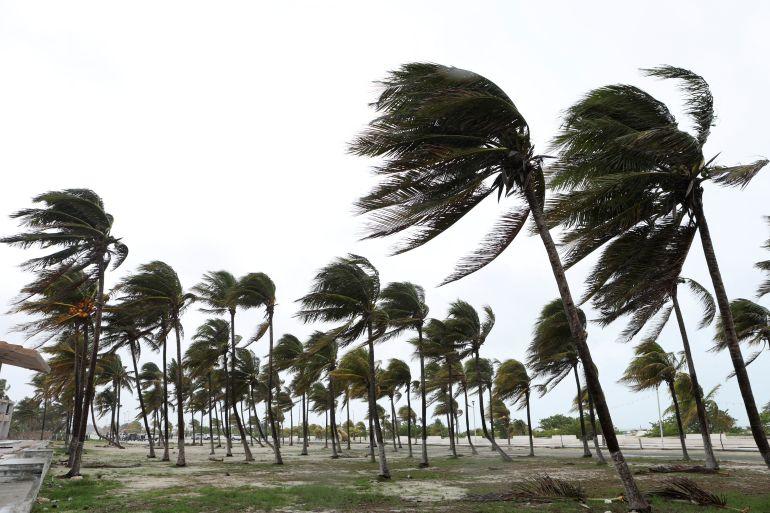Tropical Storm Beryl gains momentum on its path to Texas after causing widespread devastation in the Caribbean.
Tropical Storm Beryl is set to become more potent as it approaches Texas, following a destructive path throughout the Caribbean.
Beryl is forecasted to reach Texas on Sunday night, shortly after making landfall in Mexico's Yucatan Peninsula.
The storm may regain hurricane status as it traverses the warm waters of the Gulf of Mexico.
While no fatalities were recorded in Mexico, Beryl caused the deaths of at least 11 individuals across the Caribbean, affecting countries like Jamaica, Grenada, and Saint Vincent and the Grenadines.
Initially reaching Category 4 and briefly hitting Category 5, Beryl emerged as the strongest storm recorded early in the Atlantic hurricane season due to human-induced climate change, scientists affirm.
Expecting to make landfall in Texas as a Category 1 hurricane, Beryl is anticipated to strike between Brownsville and Corpus Christi, with possible intensification if it remains over water longer than foreseen.
Risks of storm surges in northeastern Mexico and the Texas coast, flash floods, and hazardous rip currents are forewarned by the National Hurricane Center.
Beryl's impact triggered property damages and power outages in Mexico's Yucatan Peninsula, a major tourist hub.
Hundreds of tourists from coastal hotels were evacuated with around 8,000 troops deployed to Tulum along with essential supplies.
Travel disruptions were widespread, with cancellations of numerous flights at Cancun airport.
The storm continued its trajectory, resulting in casualties along the northern Venezuelan coast and in Grenada, notably in the islands of Carriacou and Petite Martinique.
Efforts for humanitarian assistance were prioritized, emphasizing survival essentials as urged by local officials to international organizations.
The neighboring Saint Vincent and the Grenadines also faced severe repercussions, leading to additional casualties.
At least two fatalities occurred in Jamaica, where a significant portion of the populace remained without electricity.
Beryl's heightened intensity was attributed to unusually warm waters fueling major weather disturbances, a circumstance persisting in the North Atlantic according to the NOAA's observations.
Source: ALJAZEERA
ALJAZEERA MEDIA NETWORK
